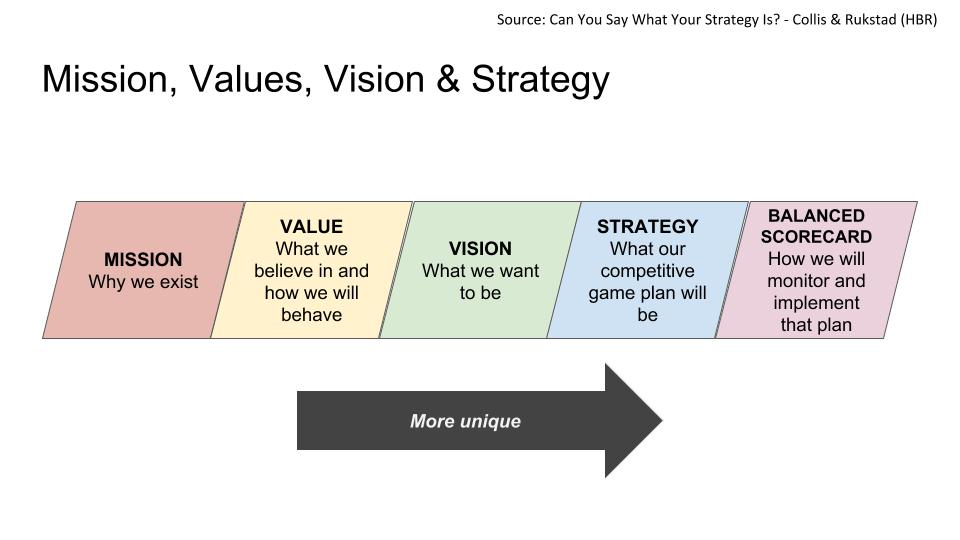In this article I’ll explain my current approach to starting an engagement or initiative with the leadership team.
This approach will ensure the initiative gets off and continues on the right footing. It’s been inspired by Collis’ and Rukstad’s approach to articulating a strategy.
Let’s start with establishing and agreeing the initiative’s intent, what outcomes it’s trying to achieve, and the rules of engagement. Created collectively during a kick-off workshop, each of the following should have a statement written in a few clear sentences; the balanced scorecard will need something a little more elaborate.
Mission
Why the initiative exists. What’s the underlying motivation of the initiative; what’s its contribution to the wider organisation and whom it’s ultimately serving.
Values
Establish what the engagement team will believe in, and how it will behave. This team is a partnership of the key stakeholders/leaders and the consultants/coaches.
The values govern how the team behave (“doing the right thing”), not necessarily what the team should do (“the right thing to do”).
Vision
What we want the initiative to deliver. It could be an indeterminate future goal.
Strategy
What’s our game plan. Identify a number of coherent approaches that the team have reasonable confidence in. From these create an ordered backlog.
Ensure they’re SMART objectives. Know that certain approaches may fail, so ensure a plurality of strategies, and a flexible mindset.
To ensure understanding and alignment, use tools such as Karl Scotland’s Backbriefing A3.
Balanced Scorecard
Monitor and judge which approaches are working against success criteria.
To help with visibility and alignment, ensure the statements and balanced scorecard are shared across the organisation and with the relevant suppliers & partners.
Throughout the engagement judge buy-in and motivation, especially their appetite for uncertainty and the need to potentially change some established expectations. Establish how much genuine leadership commitment exists, especially when it comes to making some tough trade-offs.
The kick-off should be the start of an ongoing review to see if the initiative is on track; to check whether to continue with the current set of approaches or pivot with another set.
Importantly, if despite best efforts, the initiative isn’t providing value, exercise the option to end it early. There’s no point spending time and money flogging a dead horse.
I’m available if you’d like someone experienced to facilitate this as part of an engagement’s kick-off and to periodically review progress.
References
- Can You Say What Your Strategy Is? – Collis & Rukstad (HBR – 2008)
- Karl Scotland’s Backbriefing A3
- A letter to a future client
- Envisioning workshop: Co-create shared Vision and Strategies

